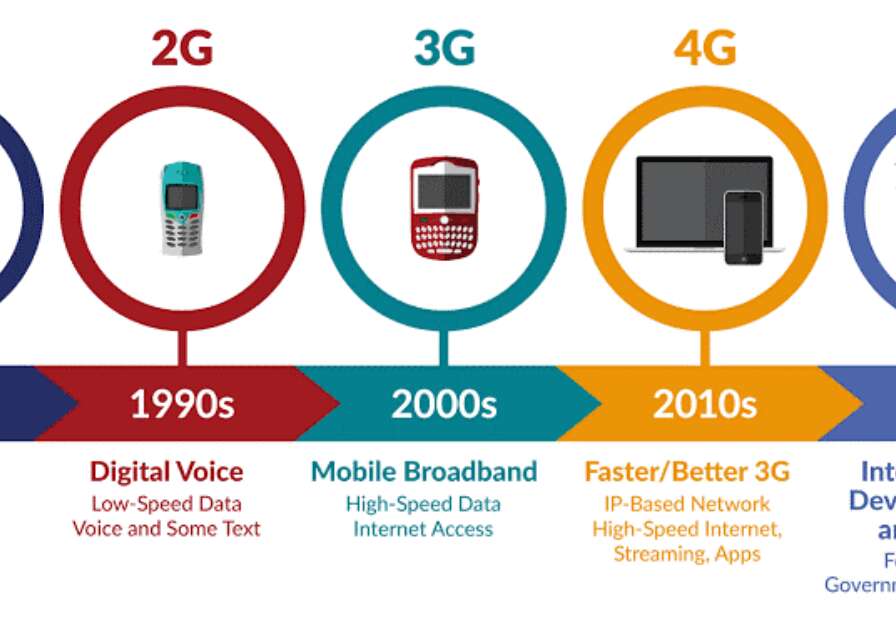Shop At Haya: Your Ultimate Shopping Guide
Discover the best shopping tips, trends, and deals for a smarter buying experience.
Is 5G Worth the Hype? The Surprising Truth
Uncover the surprising truth about 5G! Is it really worth the hype? Dive in to find out what you need to know!
5G vs. 4G: What’s the Real Difference and Is It Worth the Upgrade?
The leap from 4G to 5G technology represents a substantial evolution in mobile connectivity. One of the primary differences lies in speed; 5G offers download speeds that can exceed 1 Gbps, compared to the typical maximum of about 100 Mbps for 4G. This increase in speed enables quicker downloads and smoother streaming of high-definition content. Additionally, 5G significantly reduces latency, dropping it to as low as 1 millisecond compared to 30-50 milliseconds for 4G. This improvement is particularly crucial for applications requiring real-time responsiveness, such as online gaming and augmented reality.
When considering whether the upgrade from 4G to 5G is worth it, it's essential to evaluate your needs. If you use your mobile device for basic tasks such as browsing and social media, 4G may suffice for the time being. However, for those who rely on high-speed internet for work or entertainment, the transition to 5G could be beneficial. With its enhanced capacity to support more devices simultaneously and its potential to unlock new technologies like smart cities and autonomous vehicles, 5G is paving the way for future advancements. Ultimately, the decision depends on your specific usage patterns and whether you feel the increased speed and reliability justify the upgrade.

The Future of Connectivity: How 5G is Shaping Our Digital Lives
The advent of 5G technology marks a revolutionary shift in how we connect and interact with the digital world. With its promise of blazing-fast data speeds, low latency, and the ability to connect a multitude of devices simultaneously, 5G is set to transform everyday experiences. For instance, the integration of smart home devices will become seamless, allowing users to control everything from lighting to security systems with unprecedented ease. Additionally, industries such as healthcare and transportation are poised to benefit greatly, with innovations like remote surgeries and autonomous vehicles becoming a reality.
As we delve into the future of connectivity, several key trends emerge that highlight the impact of 5G on our digital lives:
- Enhanced Mobile Experiences: Streaming ultra-high-definition content and engaging in immersive augmented reality (AR) experiences will become commonplace.
- Smart Cities: The proliferation of smart sensors will lead to improved urban planning and energy efficiency.
- Increased Accessibility: Remote communication and collaboration tools will bridge gaps in education and employment opportunities.
Is 5G Safe? Debunking Myths and Addressing Health Concerns
As the rollout of 5G technology continues globally, concerns about its safety have emerged among the public. Many myths have circulated, suggesting that 5G networks could lead to serious health issues, including cancer and other diseases. It's important to recognize that these fears largely stem from misinformation and a lack of understanding of how radiofrequency (RF) radiation works. The reality is that 5G technology utilizes electromagnetic waves, which have been extensively studied, and the consensus among health organizations, including the World Health Organization (WHO), is that there is no conclusive evidence linking 5G to adverse health effects.
In addressing the health concerns associated with 5G, it is essential to consider the actual levels of RF exposure experienced by the public. Regulatory bodies set strict safety limits for exposure, and 5G devices are designed to operate well within these limits. Moreover, the technology represents an evolution in telecommunications, providing faster speeds and more reliable connections without increasing the overall RF exposure compared to previous generations like 4G. In summary, while it's natural to have questions about new technologies, the current scientific evidence indicates that 5G is safe for public use, dispelling many of the myths that have contributed to widespread fear.